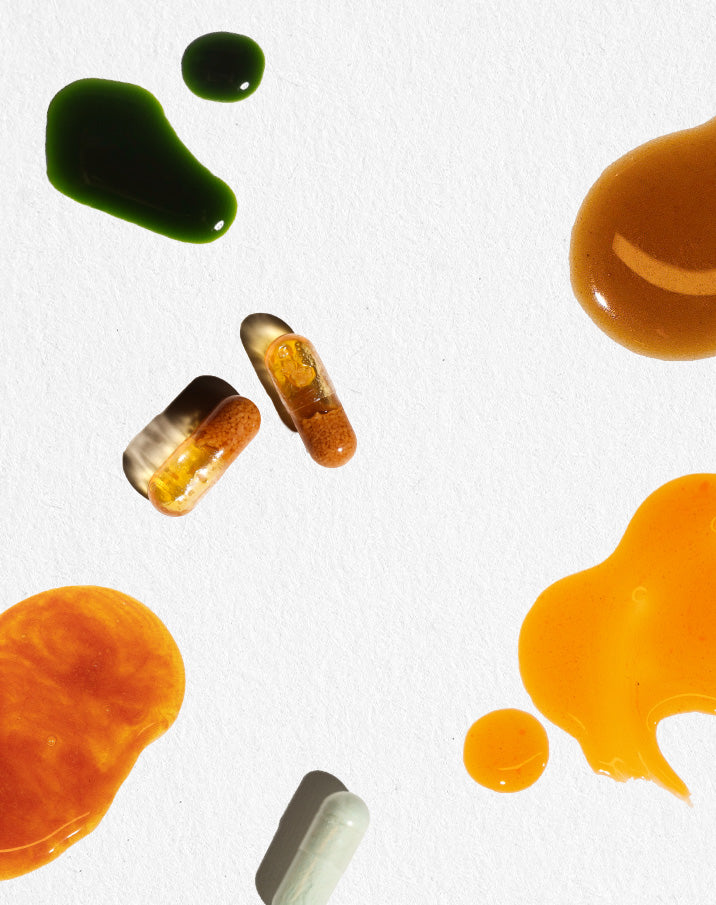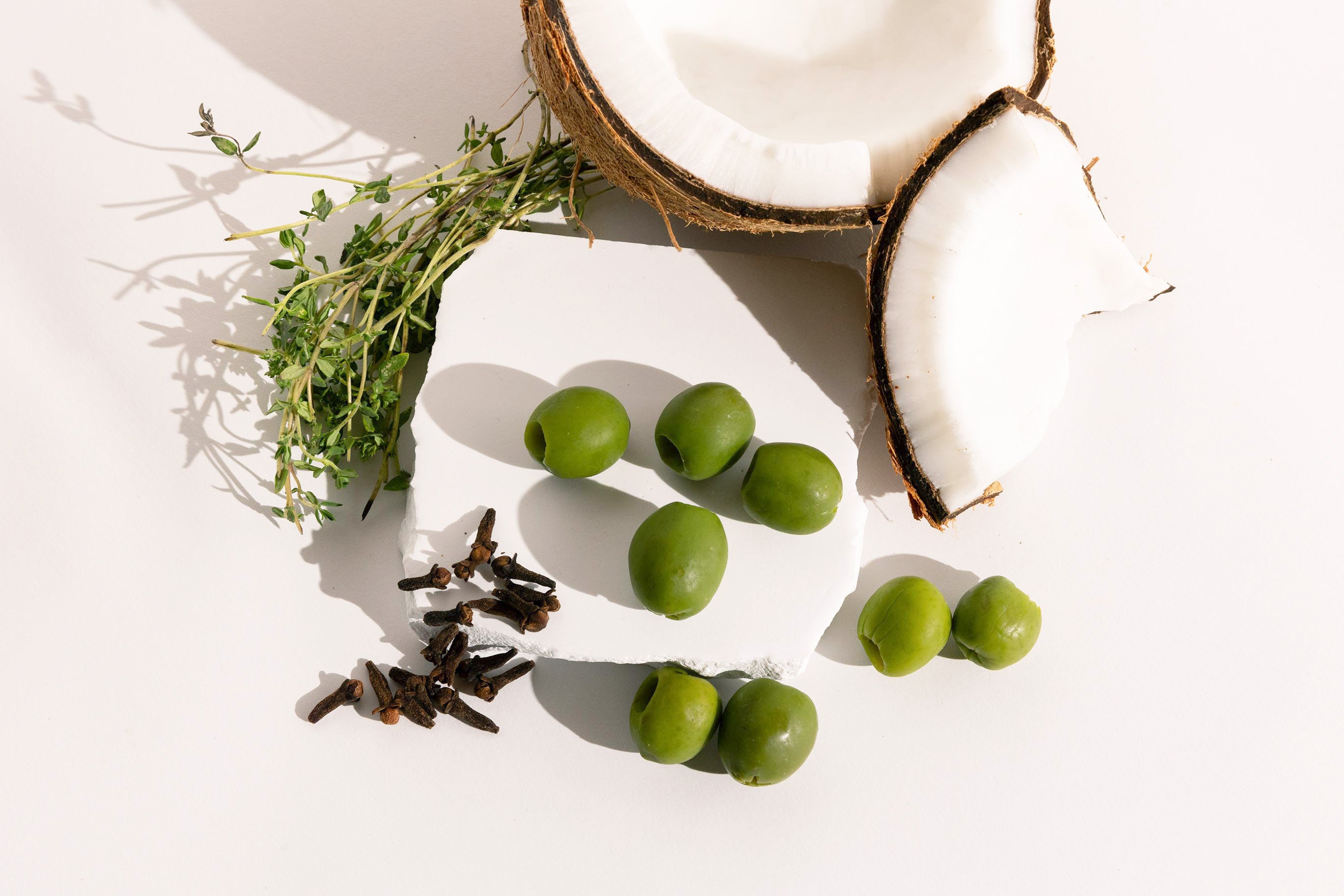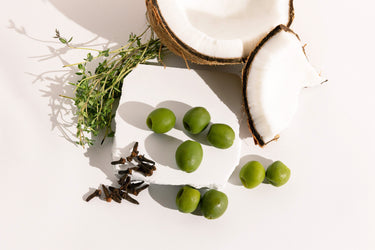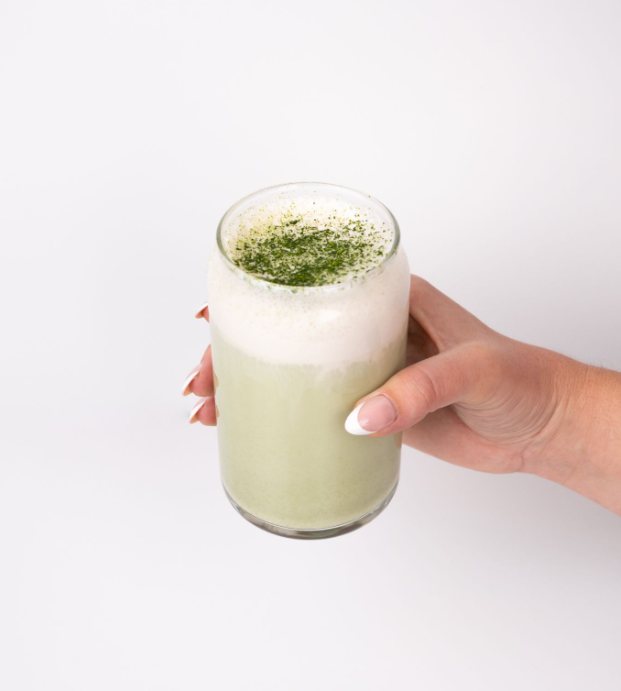
When flu season arrives, we often ask ourselves what steps we can take to avoid it.
While there’s no magical elixir that guarantees you’ll make it through flu season unscathed, there are plenty of natural supplements you can stock up on in advance. Adding them to your daily routine may help you avoid the flu—and all of the uncomfortable symptoms that come with it.
The flu virus or influenza virus is an infectious disease that can cause fever, muscle aches, sore throat, cough, and other symptoms that leave you feeling fatigued.
From vitamin C to elderberry, join us as we discuss how to prevent the flu with a list of six immune-boosting supplements and offer a few strategies to keep you safe from pathogens all year round.
#1 Vitamin C
Vitamin C is one of the best vitamins to take when you’re sick. When we were children, if we complained of a sore throat or stuffy nose, many of us were given a chewable vitamin C tablet. When we asked our parents why they gave us vitamin C, the answer was always the same: It helped to stop a cold in its tracks.
As adults, many of us cling to that memory and still take an extra dose of vitamin C at the first sign of a runny nose or itchy throat. But is it actually effective at nipping the cold or flu in the bud?
Sort of.
While taking vitamin C supplements daily won’t prevent you from finding yourself with an unexpected illness, they may help shorten its duration by a day or two. Just like a pure shilajit’s free-radical scavenging ability, you can thank Vitamin C for its antioxidant properties, which may be able to give your immune system a boost when fighting against pathogens, like the cold or flu.1
Our Liposomal Vitamin C takes the antioxidative properties of vitamin C to the next level, offering quick absorption and high levels of vitamin C—exactly what you’re looking for when you feel a cold coming on. Simply mix it into your drink of choice or enjoy it right out of the package. Voila—vitamin C made easy.
#2 Garlic
In addition to adding extra zest to your favorite dishes, garlic has also been linked to a handful of health benefits, including:2
- Reducing the risk of heart disease
- Improving cognitive health
- Increasing immune function
But how exactly does it give your immune system a boost?
Garlic contains compounds that may have a positive impact on how white blood cells respond when fighting off pathogens.2 According to a recent study, patients who consumed aged garlic extract (AGE) had less severe cold and flu symptoms than those who took placebos.3
So, when fall and winter arrive, consider adding a garlic supplement to your morning routine.
#3 Vitamin D
Known for its ability to keep bones healthy and strong, studies have shown that vitamin D may also have immune-boosting capabilities. This could prove to be very beneficial when you’re fighting off an infection—or trying to prevent one in the first place.4
But because the winter months often bring uncomfortably chilly temperatures with them, many people don’t spend as much time outside, which can lead to low vitamin D levels. Some scientists suggest that these lower levels of vitamin D might be a critical catalyst in the increase of flu rates in the winter.5
So how do you fit in an adequate dose of vitamin D during flu season?
Also known as the sunshine vitamin, you can easily absorb your daily dose by basking in the sun.
Whether you live near warm sandy beaches or the snowy mountainside, stepping outside a few days a week for 10 to 30 minutes is ideal.6 Lighter skin tones require less sun, while darker skin tones have more melatonin and typically need more time to absorb vitamin D.
A few of our favorite relaxing ways to soak in vitamin D while outside include:
- Going for a quick walk and basking in the sunshine
- Lounging in the sun while listening to a chapter in your latest audiobook
- Meditating in a quiet outdoor space
- Enjoying a hot cup of coffee on the patio of your local cafe
If you live in a winter wonderland or somewhere the sun doesn’t visit often, however, you might not be keen on the idea of standing outside waiting to absorb your vitamin D—and luckily, you don’t have to. You can also incorporate a vitamin D supplement into your daily routine to give your immune system a jump start during cold and flu season and support the healthy growth of your bones.
#4 Mushrooms
From creamy mushroom risotto to savory balsamic mushroom glaze, mushrooms are key ingredients in plenty of delectable dishes—but did you know you can also add them to your coffee to promote immune health?
It’s true. In addition to coffee, you can mix powdered mushrooms into smoothies, stir-fries, and any other delicious masterpiece you can muster—all for the sake of potentially improved immunity.
Mushrooms have been used for thousands of years by ancient Greeks, Chinese alchemists, Native Americans, and other cultures around the world.7 More recently, medicinal mushrooms have gained popularity in Western medicine thanks to their potential immune-boosting properties.
There are a wide variety of medicinal mushrooms to choose from, each with its own unique blend of health benefits. For a complex combination of mushrooms, give our Longevity Mushrooms supplement a try. It’s full of antioxidants, vitamin D, and B vitamins and contains six different types of mushrooms, including:
- Reishi
- King Trumpet
- Shiitake
- Lion’s Mane
- Turkey Tail
- Cordyceps Militaris
#5 Zinc
In the 1990s, zinc gained quick notoriety as the go-to tablet to make you feel better when you were sick, much like chicken soup. If you felt any oncoming cold or flu symptoms, you simply took a zinc lozenge and let it work its magic.
But were they effective?
Yes, taking zinc lozenges can help reduce the overall length of your cold—and when the average cold sets you back seven to 10 days, every day counts. According to a 2016 study, many patients who used lozenges during the duration of their colds reduced the overall length of their illness by over two days.8
The idea behind using zinc in a lozenge form is simple. Viruses often enjoy living in your mouth and throat, so sucking on a lozenge provides adequate time for the zinc to coat those areas. In doing so, zinc can begin to reduce inflammation caused by the pathogen.9
But for zinc to be most effective in reducing the length of your illness, we recommend taking a zinc supplement within 24 hours of noticing your first symptom.
#6 Elderberries
Elderberries are chock full of antioxidants and vitamins that may offer additional support to your immune system. Due to their potential anti-inflammatory and antiviral properties, some experts believe that a high-quality elderberry extract may be effective in shortening the severity and duration of cold and flu symptoms—especially if taken within the first 24 hours you’re experiencing symptoms.10
If you’re looking for an elderberry supplement that’ll support your health year-round, look no further: Our Elderberry Defense Oil boasts not only elderberry extract, but a handful of other potential immune-boosting ingredients as well, like echinacea, vitamin C, and vitamin E.
Tips to Help You Avoid Getting Sick
Of course, you can never take too many precautions when trying to steer clear of the cold and flu. In addition to making an appointment for your yearly flu shot, antiviral drugs, and taking supplements, you can be proactive by adding these tried-and-true healthy habits to your daily regimen:11
- Wash your hands – Sure, it sounds easy, but the easiest tasks are often the ones we overlook. You can easily wash your hands on the go by carrying a travel-sized hand sanitizer in your purse or car. In addition, make it a habit to wash your hands with warm water and soap for at least 30 seconds when you make it home to rid yourself of cold and flu-causing germs.
- Avoid touching your face – When someone tells you not to do something, it often makes you want to do it even more. But when it comes to touching your mouth, nose, or eyes, make a conscientious effort to avoid it. Why? Germs easily spread from your hands to your face, which is an easy entrance point for germs to find their way into your body.
- Improve your sleep – Receiving eight hours of shut-eye each night isn’t just for beauty rest. Getting enough sleep also supports your immune system so that your body is more prepared to fight off an infection on the off chance that you’re overcome with the flu.12
Find Immune-Boosting Supplements You Can Trust with Cymbiotika
Even with healthy daily habits in place, there’s only so much you can do to protect yourself from the flu. But the right supplements into your daily routine may help support your immune system to fight off the common cold and flu.
With Cymbiotika’s Immunity Collection, you can have peace of mind not only during flu season but all year round. From Coated Silver to Liposomal Elderberry you can stock up on supplements created with your immune health in mind.
Browse our collection today and jumpstart your journey to a healthier immune system.
If you're suffering from severe illness or a complication from the flu virus, please seek medical care immediately and consult with your primary care physician or health care professional.
Sources:
- NIH. Vitamin C and Immune Function. https://www.ncbi.nlm.nih.gov/pmc/articles/PMC5707683/
- Healthline. How Garlic Fights Colds and the Flu.https://www.healthline.com/nutrition/garlic-fights-colds-and-flu/
- NIH. Aged Garlic Extract Modifies Human Immunity. https://pubmed.ncbi.nlm.nih.gov/26764332/
- Harvard. Vitamin D. https://www.hsph.harvard.edu/nutritionsource/vitamin-d
- Jama Network. Association Between Serum 25-Hydroxyvitamin D Level and Upper Respiratory Tract Infection in the Third National Health and Nutrition Examination Survey.https://jamanetwork.com/journals/jamainternalmedicine/article-abstract/414815
- Healthline. How to Safely Get Vitamin D From Sunlight.https://www.healthline.com/nutrition/vitamin-d-from-sun#skin-color
- NIH. Medicinal Mushrooms: Ancient Remedies Meet Modern Science.https://www.ncbi.nlm.nih.gov/pmc/articles/PMC4684114/
- NIH. Zinc acetate lozenges for treating the common cold: an individual patient data meta-analysis. https://pubmed.ncbi.nlm.nih.gov/27378206/
- Harvard. Zinc. https://www.hsph.harvard.edu/nutritionsource/zinc/
- Novant. Elderberry Syrup for Flu? Here Are the Facts. https://www.novanthealth.org/healthy-headlines/elderberry-syrup-for-flu
- CDC. Healthy Habits to Help Protect Against Flu. https://www.cdc.gov/flu/prevent/actions-prevent-flu.htm
- Sleep Foundation. How Sleep Affects Immunity. https://www.sleepfoundation.org/physical-health/how-sleep-affects-immunity







